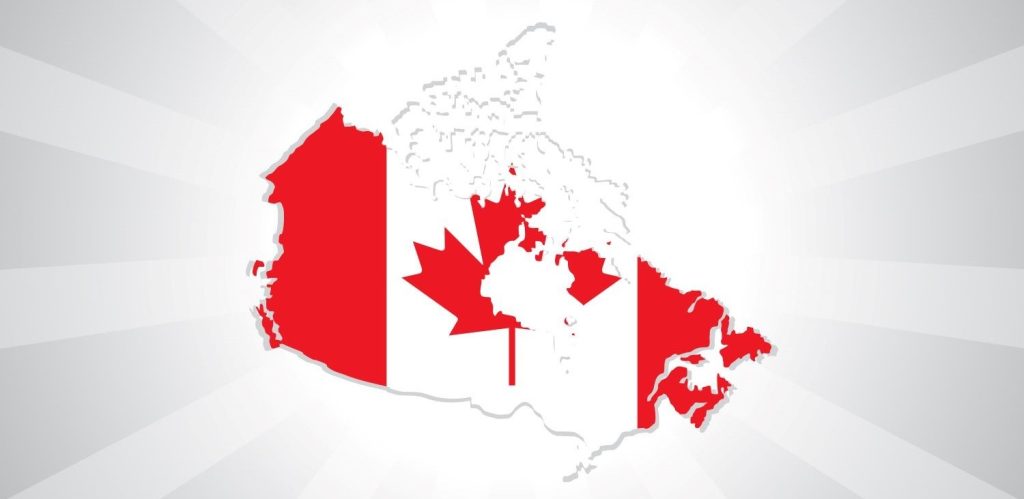How French language can help you immigrate to Canada?

French is Canada’s official language. It’s a key part of Canada’s national identity and heritage. Therefore, Canada offers many places to attract French-speaking immigrants.
Canada allows entry for French speakers
Groups were drawn for French Entry candidates in the summer of 2023. All else equal, a French-speaking candidate is more likely to get an invitation. A high jump competition seems to be happening in Canada. But, the bar is lower for French-speaking competitors.
Quebec is mainly French-speaking. It has more say in immigration than other provinces. But, Canada also wants to bring French speakers to other parts of the country.
In 2022, Canada met its target. It had aimed to attract 4.4% of French-speaking immigrants from outside Quebec. This target has been exceeded by 4.7% by 2023. IRCC expects to increase this to 6% by 2024, then to 7% by 2025 and 8% by 2026.
A new law was announced in 2023 to encourage the use of French. The law requires certain things. Among them is for the immigration director to develop policies. The policies aim to attract French-speaking immigrants to Canada. Canadian Immigration Minister Marc Miller announced new rules and regulations in January 2024. They update and expand the “Welcome to the French community” initiative. He confirmed this later in March. He announced the new Francophone immigration minister. They will increase the role of French-speaking immigrants. They will focus on the city and remote communities in the north. These projects aim to grow French-speaking minorities outside Quebec. They do this by funding them through the Francophone Immigration Service. The share of immigrants scoring points for France in the Express Entry system rose. It rose from 4% in 2019 to 6% in 2021. This is from the Express Entry annual report. A total of 18,140 Express Entry candidates received France loans in 2021.
Now France has its own Express entry category. It would not be surprising to see this number grow. Lower CRS scores are needed. Knowing French will be the best way to immigrate through Immigration in 2024.
How can France help you immigrate to Canada through Immigration?
Knowing French can get you more interesting content. This increases your chances of being invited to a particular draw. But, you also qualify for a check based on a specially prepared French language category. Points are usually lower than the main ones. If you don’t already know,
Immigration is the name of the system. It manages applications for Canada’s Immigration Work Program. Our “Fast Pass” programs are:
Federal Technology Industries (FST)
Express Entry uses a score matrix called the Comprehensive Ranking System (CRS). It scores factors like English, work, education, and age. All candidates must know at least English or French. Preferably, they know both. You immigrated to Canada through Immigration. You qualified for the Entry Programmed. You got CRS scores and an Invitation to Apply (ITA) at the Express Entry check. You submitted a complete form. ITA is your fast-track ticket to applying for permanent residence in Canada.
How many French entry points are there?
Proficient candidates in English or French, by CRS standards, can get CRS points. You can start at Level 4 of the Canadian Language Benchmark (CLB) for English. Or, you can start at Level 4 of the Canadian Language Competency (NCLC) for French. Then, you can score points for English language in the Express Entry system. The highest score an individual can get is 32 points. If the student is applying in the first language with his/her spouse, it is 34 points. Proficiency in the second language is 6 points.
You get points for your speaking skills. You can also get up to 50 CRS points for your good French – even if French is not your first language.
To receive these additional points, you must score at least 7 NCLC points in each French skill. NCLC 7 skills need no skill or knowledge. But, the better you show your ability, the more points you will get. From here, you can get an extra 25 points if your English score is CLB 4 or lower. You can get this point if you do not submit your English test to the Express Entry profile. In addition to the French NCLC score of 7, you can get 50 more points. You get them if you score a 5 or higher in four English skills on the CLB.
These are the French ways to earn more points in the pool, but as you can see there are other ways to draw category-wise.
Participate in the French Category Raffle
Canada also uses a category-based check for Express Entry candidates. They must have an NCLC score of at least 7 in French.
These draws tend to have the lowest CRS cutoff. This is because they do not compete for invitations with other teams in the pool. Generally speaking, the more invitations sent in the draw, the lower the CRS score will be.
Quebec Experience Program
Outside of Quebec, there are many immigration programs for French speakers. These programs are under the Provincial Nominee Program (PNP). Some of these regulations use the application form to be administered by the state. For example, New Brunswick launched the New Brunswick Strategic Plan. It targets francophones. They have skills and work that will help the New Brunswick economy. French speakers should also check out the Northwest Territories French rivers.
Other PNPs draw candidates from the Express Entry pool. Candidates who get PNP nominations will get 600 CRS points. This is on top of their total points. This prize is enough to be invited to the Express Entry drawing. For example, the Ontario Immigrant Nominee Program (OINP) has a program. It is called the French-Speaking Skilled Worker Stream (FSSWS). Open to Express Entry candidates with at least NCLC Level 7 in French and CLB Level 6 in English. Eligible candidates must also meet the Federal Workforce or Canadian Experience Class requirements. They must indicate that they are from “Ontario” and prove they have enough money to live there. In addition, there is the French-Speaking Workforce Group (FSSWS). Ontario has more for French and English bilinguals. It’s in the Career and Graduate category.
Ontario is the top province for new immigrants. It also has a large French population. According to the 2021 census, approximately 11% of Ontario’s population speaks French.
Other states may also challenge French speakers in their current education systems. Learn more about Canada’s PNP. The district is also trying to attract French speakers. This includes the Northwest Territories Francophone stream.
The pilot will start in 2024. It will support IRCC’s commitment to accept more French speakers from outside Quebec. The goal is to accept at least 2,750 applications per year for the next five years.
Temporary options for Canadian French speakers
French speakers work outside Quebec. They are considered to have made “significant contributions” to Canadian culture. As a result, Canada created the Francophone Mobility Program. It lets Canadian employers more easily hire French-speaking foreigners. Canadian employers can use the Business Intelligence Assessment (LMIA) program. Their employees are eligible for French mobility assistance. This can be a tempting reason to hire a French speaker. The LMIA process is long, costly, and unpredictable for employers.
To be eligible, you must be eligible for a Canadian job (any job other than a farm manager) outside Quebec. Your French requires NCLC Level 5 or above. You must also meet the general requirements for all work permit applicants.
Your work in Canada can open immigration doors. This is true for the Canadian Experience Class (CEC). It is also true for some Provincial Nominee Programs (PNP).
Canada offers many financial opportunities for French speakers. If you speak English and French, it will help you for any job you apply for. For example, French skills can help you find work with the Canadian government. Some provincial governments also need bilingual services. Also, Bill C-13 requires the government to regulate private companies in France.
Also, if you want to teach French in Canada, there are many chances there. That’s because there are French schools in Canada that teach French to children.
We do not have access to all the job opportunities that French talent can offer in Canada. But, the Canadian Broadcasting Corporation also has a media operation in France. It is nationwide.
These examples don’t even touch on Canada’s tourism industry. It helps French speakers worldwide.
The value of speaking French in Canada goes far beyond job opportunities. It will help you build a successful career. It will also connect you with all French speakers in the country.
What to do if you don’t speak French – our advice
Learning and showing French at an intermediate or higher level is the best path to GE. IRCC’s commitment to support French immigration is a multi-year commitment until 2028.
You will have the advantage of debating the low score rather than taking the CRS. You are committed to learning French. You aim to reach the Canadian Language Benchmark (CLB) level. You plan to do so in at least the next 7 years. Learning French may seem intimidating. This is understandable. But, remember that CLB Level 7 is an “intermediate” qualification. In other words, you need to understand formal and informal communication.
Proficiency in French language can significantly enhance your chances of immigrating to Canada, especially if you plan to settle in provinces like Quebec, where French is predominantly spoken. Demonstrating fluency in French can earn you additional points in immigration programs, such as the Quebec Skilled Worker Program (QSWP), ultimately improving your eligibility for Canadian permanent residency.
Canadian immigration programs like the Express Entry system and the Provincial Nominee Program (PNP) allocate additional points to applicants with proficiency in French. Quebec’s immigration programs, in particular, place a high value on French language skills, as the province seeks to maintain and promote its French-speaking culture and community.
Speaking French opens up a wider range of job opportunities for immigrants in Canada. Many government positions, especially in Quebec and bilingual regions, require proficiency in both English and French. Moreover, French language skills are highly valued in industries such as healthcare, education, and public administration, where bilingualism is an asset.


